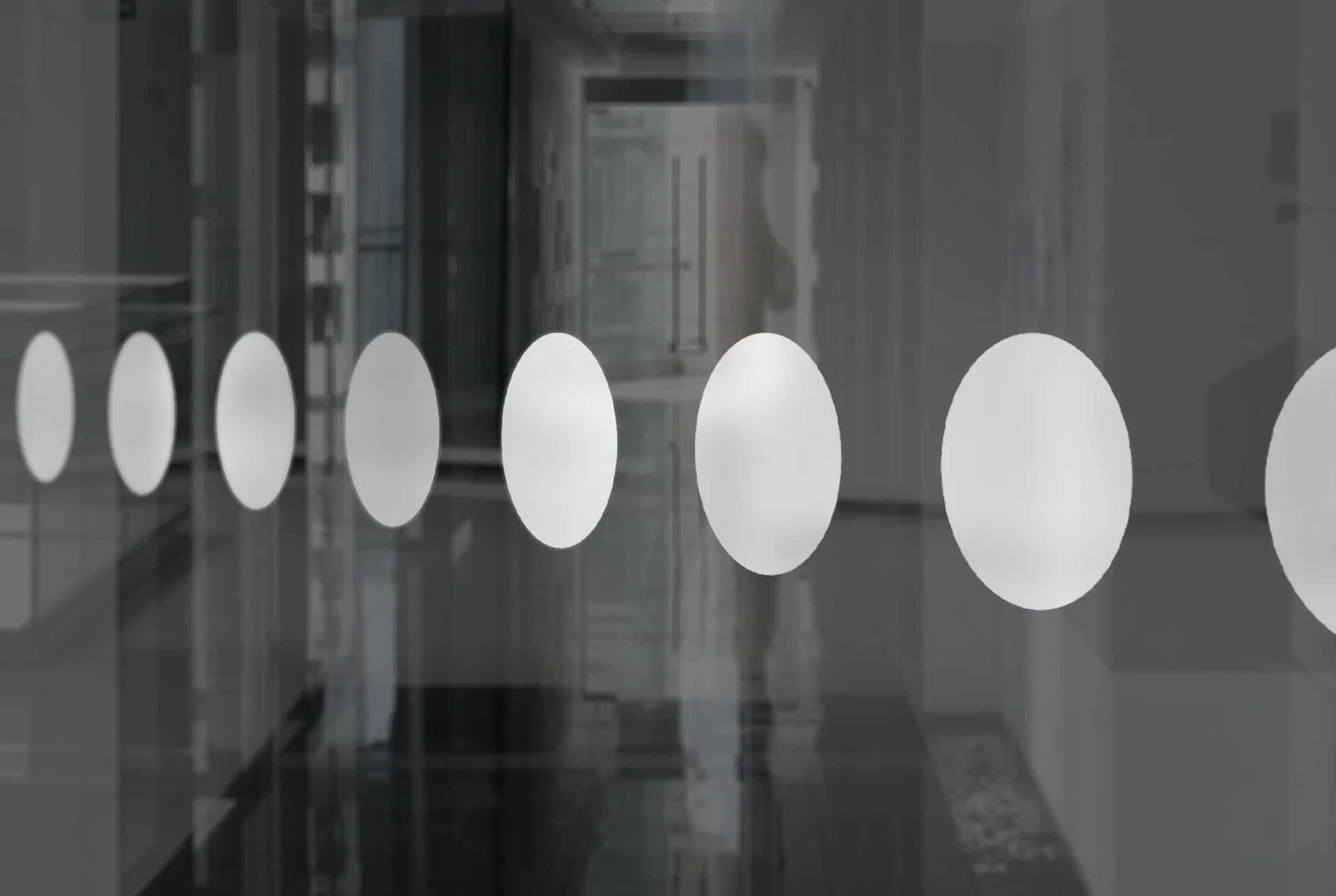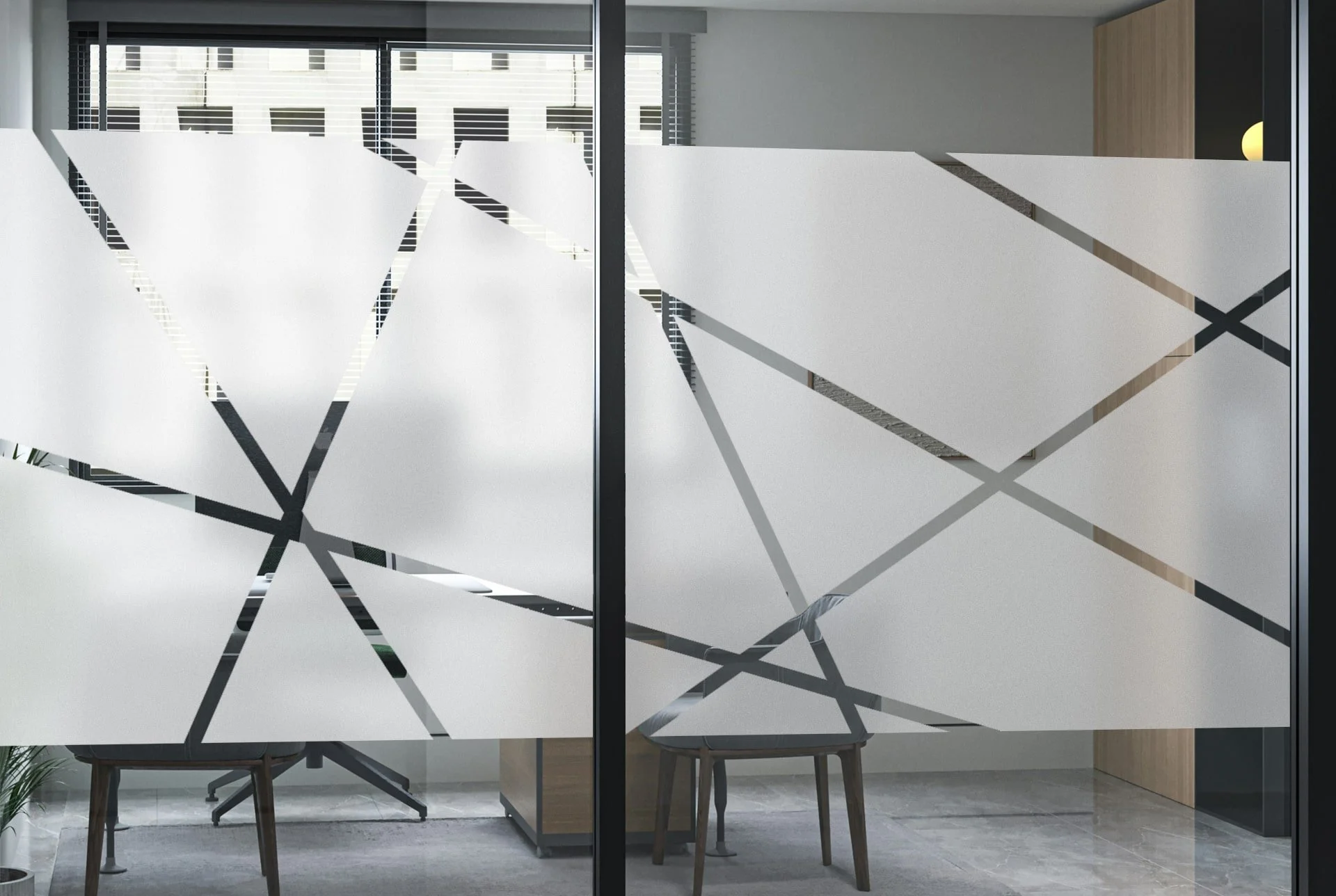How to Stay DDA Compliant with Glass Manifestations
When designing or refurbishing a commercial space, it’s easy to focus on aesthetics and forget about accessibility. But compliance with the Disability Discrimination Act (DDA) isn’t just a legal requirement, it’s a core part of inclusive, responsible design.
One of the most commonly overlooked areas of DDA compliance is glass manifestation, the application of markings to glass doors and panels to make them visible and safe for everyone, especially those with visual impairments.
In this article, we explain what’s required, what counts as compliant, and how to meet the standards without compromising your design vision.
What Is Glass Manifestation?
Glass manifestation refers to the visible markings applied to large expanses of frameless glass, such as:
Glass doors
Full-height partitions
Glazed walls and entrances
These markings are designed to prevent people from accidentally walking into clear glass, particularly those with partial sight or low vision.
Manifestations can take many forms, frosted bands, dots, squares, logos, or even full graphic designs, as long as they meet certain requirements for visibility and positioning.
What Does the DDA Require?
The DDA has been replaced by the Equality Act 2010, but its standards are still widely referred to, particularly in guidance documents such as:
BS 8300: Design of buildings and their approaches
Building Regulations Part M
Approved Document K (2013)
In short, glass manifestation must:
Be clearly visible on both sides of the glass
Provide sufficient contrast with the background
Be placed at two key heights:
850–1000mm from the floor (lower band)
1400–1600mm from the floor (upper band)
Be continuous and of adequate size and opacity
What Types of Designs Are Allowed?
You’re not limited to plain dots or squares. In fact, many organisations take the opportunity to apply brand elements or creative graphics, as long as the requirements above are met.
Compliant designs can include:
Solid or frosted bands
Company logos repeated at intervals
Decorative patterns or lines
Full-height privacy frosting (if it includes contrast at the required heights)
The key is that the manifestation remains permanently visible, even in varying light conditions.
Best Practices for DDA-Compliant Manifestation
Use Frosted Vinyl or Contrasting Film
Opt for materials that are easily seen against glass in both bright and dim lighting.
Stick to the Height Guidelines
The two-band rule is essential for meeting compliance — make sure both levels are clearly marked.
Test from Both Sides
Always check that your manifestation is visible when viewed from either direction.
Avoid Overly Subtle Designs
Minimalism is fine, but transparency or low-opacity patterns may fail to meet contrast requirements.
Incorporate Brand Without Losing Compliance
Your logo or graphics can serve as manifestation, just ensure the visibility and height rules are observed.
Common Mistakes to Avoid
Using single-band frosting that misses one of the required height ranges
Applying clear or too-transparent vinyl that blends into the background
Relying on temporary stickers during fit-out with no permanent solution
Assuming that any graphic automatically counts as manifestation
Why It Matters Beyond Compliance
Staying compliant isn’t just about avoiding legal issues. It’s about creating a safe, welcoming environment for all users, clients, employees, and visitors alike.
Accidents involving glass panels can cause serious injury. Properly applied manifestation helps to prevent collisions, reduce liability, and demonstrate your commitment to accessibility.
Ready to Upgrade Your Glass Manifestation?
At Grafiscape, we help businesses meet DDA compliance while enhancing their interiors with high-quality vinyl graphics, patterns, and branding elements. From minimal dots to full glass wraps, we offer design-led solutions that respect both style and regulation.
Need advice on your next project? Contact us for a consultation or site survey.





